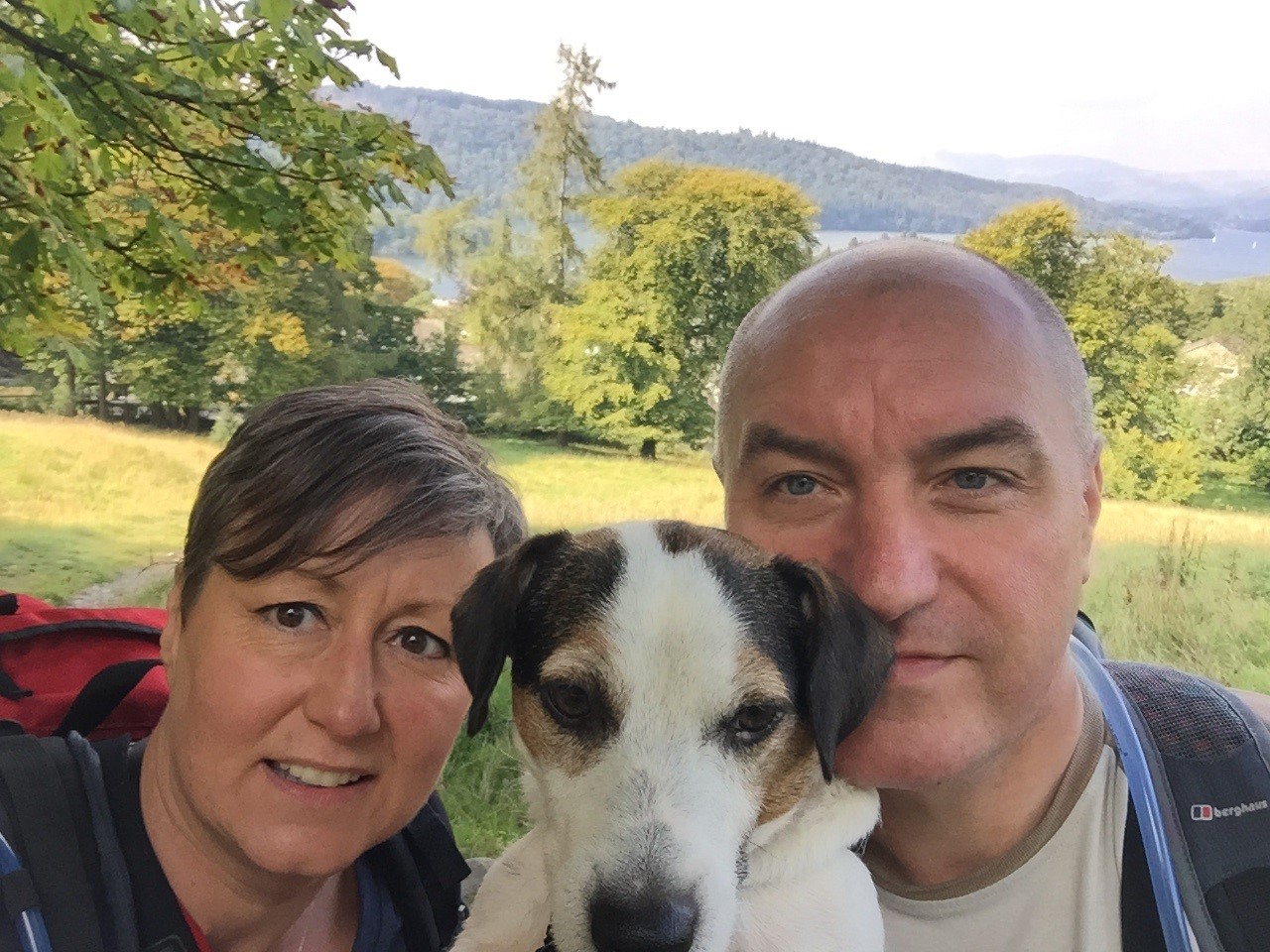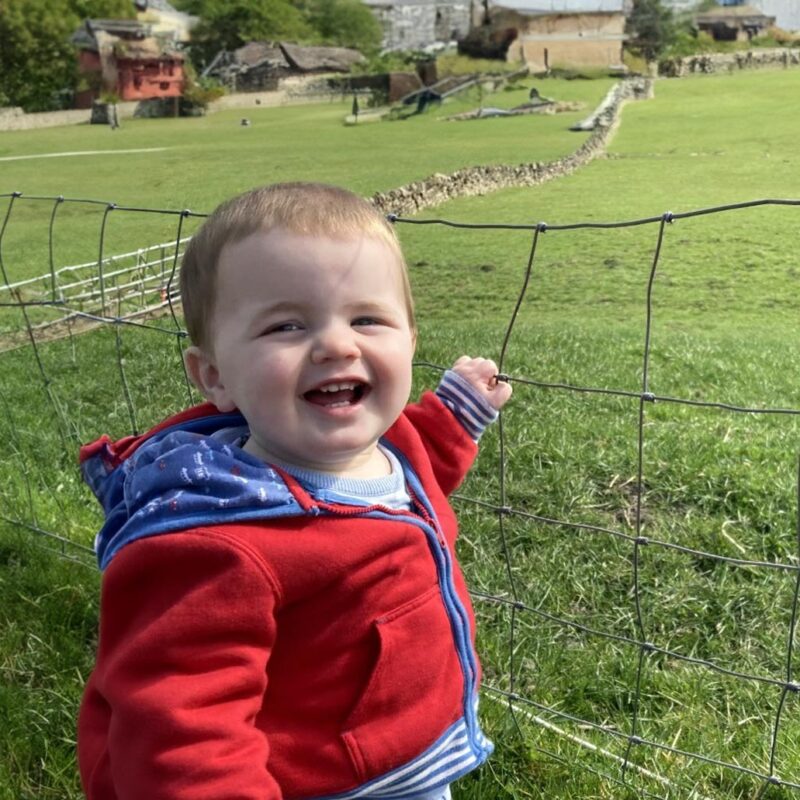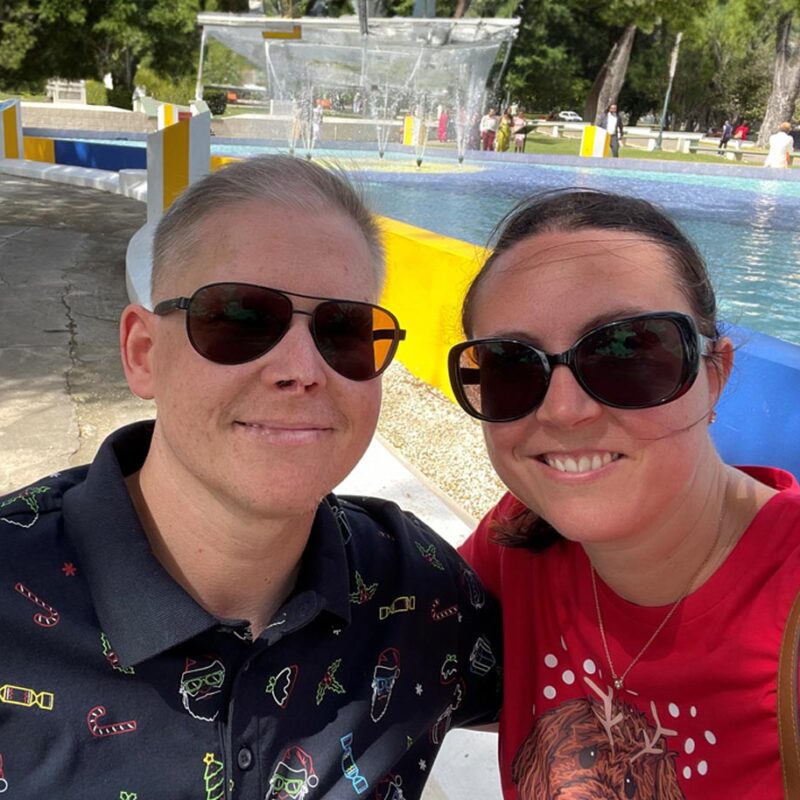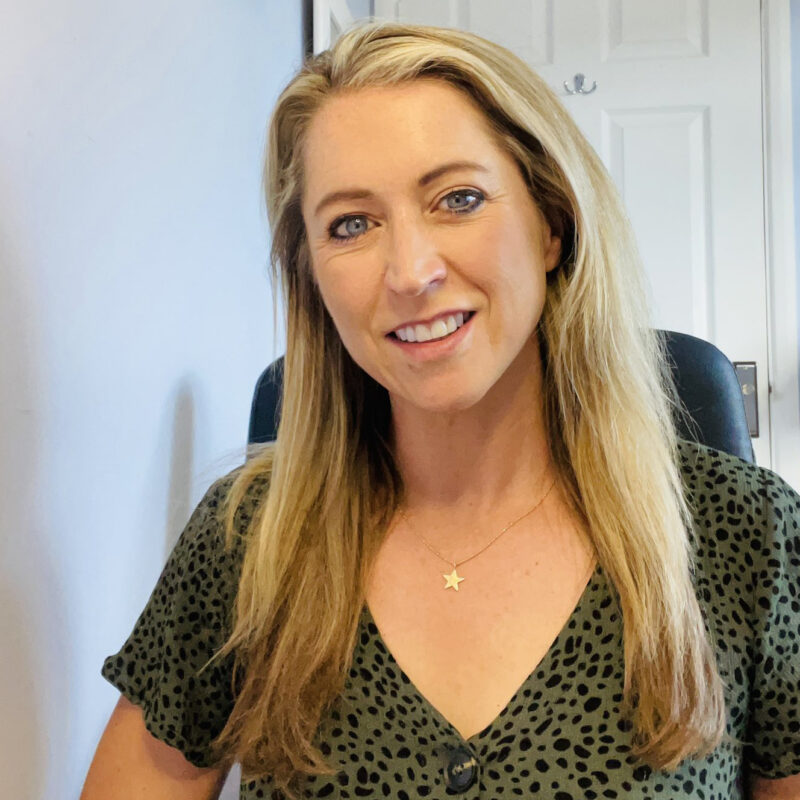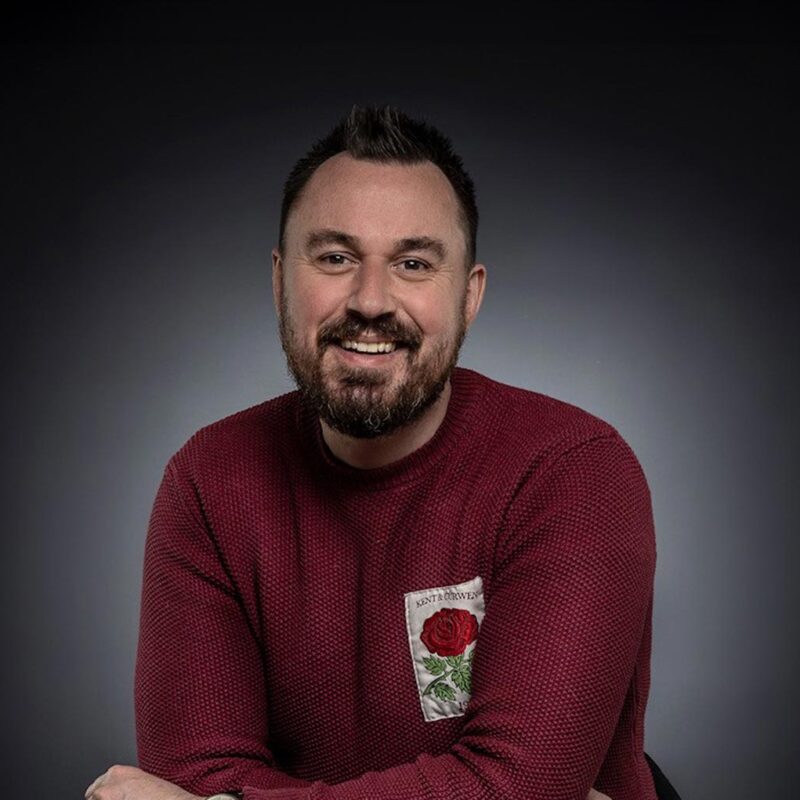Jonathan Cope’s wife Cheryl lost her life to sepsis in 2016, aged 51. The couple met at work in London, bonding over their shared North East roots, and the rest was soon history… they had been together for 14 years, and married for 7 when the unthinkable happened.
Seven years on from losing his ‘soul mate’, Jonathan is sharing Cheryl’s story to help raise awareness and encourage others to access UKST’s suite of support for anyone sadly bereaved by this awful condition.
In 2016 Jonathan came back from a work trip to Paris with flu-like symptoms. His wife, Cheryl, soon became poorly too. Jonathan said: “We’d heard there was a bad two-week flu flying around and so we just said let’s take paracetamol, lots of fluids… and over the next two weeks we gradually got worse. It turns out that we both had Strep A, I had pneumonia and Cheryl had an infection in her lungs.”
On a fateful Saturday morning, Cheryl told Jonathan she’d never felt so unwell in her life. He said: “She wouldn’t let me call an ambulance. Again, we didn’t want to be a strain on anybody. So we drove to the to the hospital and then we hit A&E on a Saturday morning after a really busy Friday night and they didn’t really have enough beds. They were understaffed. And that was really the start of the journey in the hospital. There were mistakes made and they couldn’t get her blood pressure. They couldn’t get cannula into her arm and things were missed. They sent off for lactate levels which were really high and a junior doctor misdiagnosed it, and this went on for quite a while.”
At the same time, they suspected Jonathan had meningitis as he had a rash, which was also very stressful. Then, all of a sudden, things took a turn for the worst. Jonathan said: “There was this blue wave of intensive care. People just came into the resus area and they all had blue gowns on and then they just took all over Cheryl’s care.”
At no point had anybody mentioned sepsis, staff said they thought it was a DVT, then they found the infection on Cheryl’s lung via a CAT scan. Jonathan said:
“By mid-afternoon, I’d been taken to a side ward by a consultant who said your wife’s probably not going to make it through the night.”
He added: “One of the things that I’ve always struggled with is the speed of what happened. I’ve often been told that sepsis is like a car crash. It’s like you say goodbye to a loved one in the morning and they don’t come back after they’ve been in a car crash.”
Looking back on this painful time, Jonathan said: “Mistakes were made without a doubt, and it went to a special investigation by the hospital, then went to a coroner’s inquiry. I could have easily gone down a very dark, hateful route. But I didn’t. I decided to try and make a difference so that Cheryl’s death wasn’t in vain, that her legacy meant something. From the very, very beginning, all I’ve wanted to do is to make sure this doesn’t happen to anybody else. And that’s been my sole driver for this. It’s the most important thing. It’s what she would want me to do.”
In the aftermath, Jonathan struggled to process what had happened. He said: “I didn’t really understand what had happened. I was very confused and so I hit the search engines and the UK Sepsis Trust appeared.”
While the support groups at the time were only available in Birmingham, Jonathan was able to meet with a UKST staff member in London. Eventually, Jonathan attended a support group which was a mixture of bereaved and sepsis survivors, which he found difficult. Now, though, these sessions are separated via our online support groups. Jonathan said: “One of the amazing things what’s happened with the online bereavement groups is that they are now separate. So you have a survivors group and a bereavement group. And that that’s really helped me because it’s a horrible club to be in. The price of admission is the highest ever. We all know how we feel, we’ve all suffered a death from sepsis.”
He added:
“It’s a very difficult thing to, to ask for help and ask for support and it could be a bloke thing, I’m well aware of that but on our bereavement group, there’s a couple of people that attend a lot and I think I can honestly call them friends.”
“Katie, Emma and Oliver, who are the Support Nurses are just amazing. The support and the advice they give is brilliant.”
Jonathan and his peers from the bereavement group have even set up their own WhatsApp group called the ‘golden threads’ where they look out for each other and light candles to remember their loved ones, particularly around key milestones such as birthdays or anniversaries.
Jonathan said: “The thing is, with grief, everybody’s grief different. Within our group, we’ve come across some certain ideas and phrases that we always keep in mind. We always try to be kind to ourselves. You know, I’ve certainly learned with the help of the group that it’s not better. It’s not worse. It’s just different. And you’ve got to embrace those differences.”
Within the group, Jonathan says he is an advocate for just letting yourself having a bad day if you need to have one. He added:
“The support group has been an absolute lifeline for me
“It’s just really good to catch up and it’s good just to offload as well and just to have this core group of friends. I can’t tell you how much I’ve gotten out of the bereavement group. It’s really helped and supported me through some difficult times.”
But the support groups have also given Jonathan the opportunity to help others. He said: “I joined to get support and it’s the greatest feeling in the world when somebody actually turns around to you and says, well, actually, Jonathan, you’ve helped support me. And that’s something that I wasn’t prepared for.”
To someone thinking of joining a group for the first time, who might not know what to expect, Jonathan said: “I think for anybody new that that’s wanting to join is just join with an open mind. The Support Nurses always run the online meetings, and you can sit there and you can listen, you don’t have to say a word if you want to just listen and get support from that. That’s absolutely fine. If you feel like you want to talk, then it’s fine. There’s no pressure. There’s no judgment. We’re all there, unfortunately, as we’ve sadly lost somebody to sepsis and the thing that I found is nothing’s off the table. You can talk about anything and nobody is going to judge.”
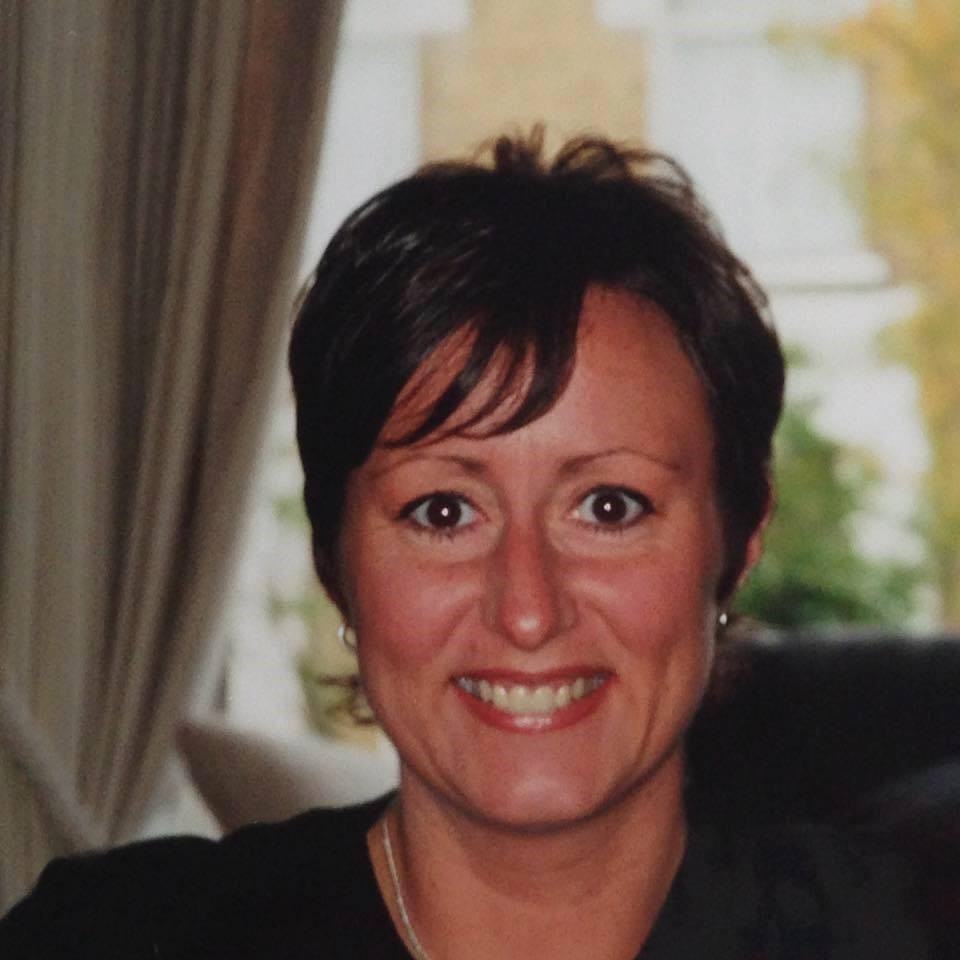
Not everyone reading this may have lost someone to sepsis, so Jonathan has one request for anyone who may feel a bit uncomfortable navigating someone else’s grief. Jonathan said: “The one bit of advice I would give is that don’t be afraid to ask somebody how they are, but for me, just do one thing. Don’t say ‘How are you?’, say ‘How are you today?’. Just that one word for me made such a difference. I dealt with it by having a script. I went back to work and people didn’t know what to say. And then they were like, ‘Oh, how are you?’ And I was like, ‘Well, you know, as good as can be expected’. And then soon as someone said, ‘How are you today?’ I was like, ‘You know what? It’s a pretty bad day today. This has happened, that has happened’. And they were like, ‘Can I help you with anything?’ and it was just that one word, that one little word at the end made such a difference.”
He added: “The thing I’ve learned about grief is that it never leaves you. It’s always with you. But what happens is that your life expands around the grief. It could be a bad day, it could be an anniversary, it could be Christmas time, it could be a birthday, but sometimes it shrinks and you’re closer to the grief and if I’d understood that at the early stages, I think I would have dealt with grief a lot better knowing that it’s not going to go away. I’m seven years in and I still carry it still with me.”
As well as carrying his grief with him, Jonathan also carries a lot of positive memories of their relationship. He said: “I’ve always said to my friends and family that we have to keep talking about Cheryl. You know, it’s not off subject at all. I love talking about memories.”
The couple met through Jonathan’s previous role with a restaurant company and Cheryl’s work as an interior designer and they soon bonded over hearing a familiar accent. He added: “My memories of Cheryl are of her wicked laugh, her amazing sense of humour. She just lit up the room and she was the social butterfly. It was like every time we went to a dinner party, the first thing she would say is, ‘Right, okay, when are you coming to us’. So she was always on the go, always down to do things. We were an amazing team and she was my best friend.”
“When we’d sat around a dinner party after a few glasses of wine, Cheryl was renowned to get a bit passionate about subjects and the odd swear word used to come out. And then I used to just to say, ‘Ladies and gentlemen, my wife’. So when I’m at a dinner party now, and something similar happens everybody says, ‘Ladies and gentlemen, my wife’. So it’s just things like that which keep her memories alive. I meet up with friends regularly and we always chat about Cheryl and the times we had. They are really good memories and a real love and friendship.”
We’re grateful to Jonathan for sharing Cheryl’s story in the hope of encouraging others to be more vulnerable about their grief.
